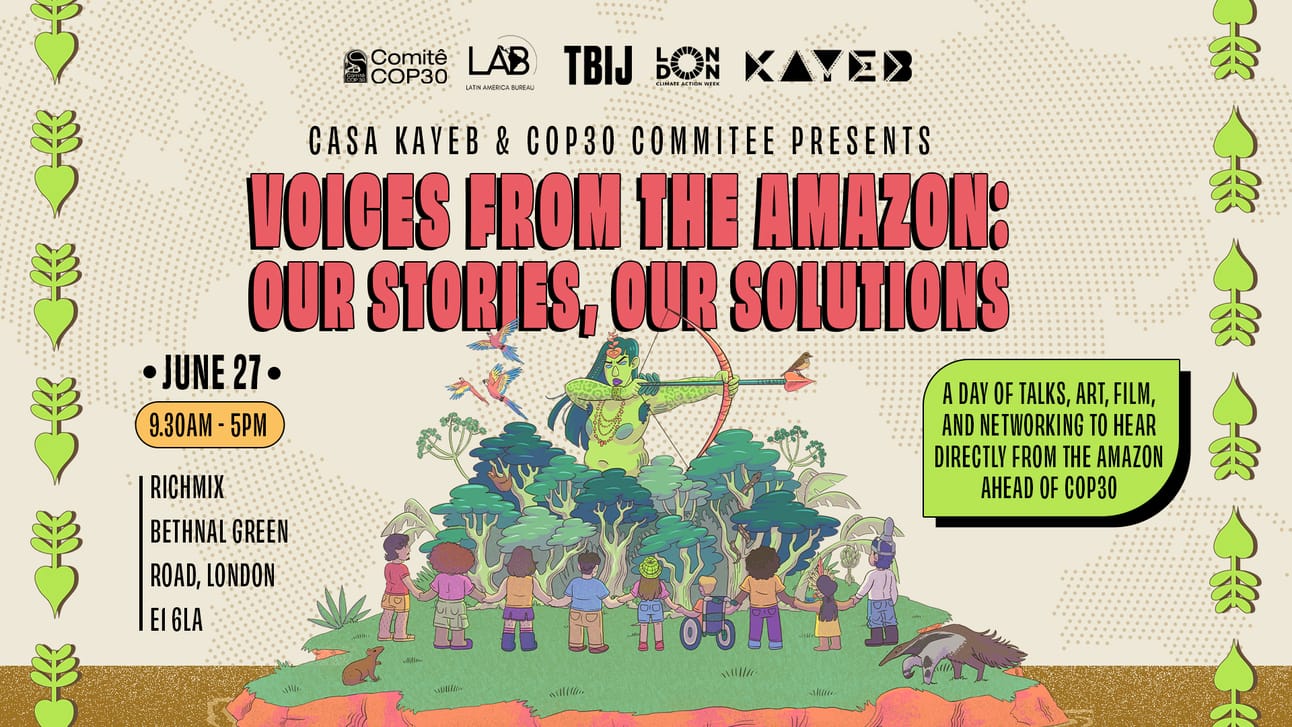
“It is deeply concerning that someone who may have been acting outside of their field of competence was able to give evidence in such a potentially huge number of court cases.”
Hi {{ First name | there }},
Welcome back. This is going to be another bumper edition. The team here at TBIJ is on fire.
I want to start with the shocking story of a young boy placed in an illegal children’s home for four months.
Isle of Wight council had removed him from his parents’ care after he witnessed domestic violence at home. He’d also been put under a Deprivation of Liberty order, something very rarely granted for children this young, which allows him to be closely watched and, if necessary, restrained by the staff watching him.
A court process around the order revealed some shocking details. The most startling for me was that he was being held in a semi-detached house where he was the only child, with three teams of four supervising him. As you might imagine, the boy struggles to form any real relationship with the carers because of the size of the team.
The judge who was ruling on whether to renew the order called the standard of care at the home “wholly inadequate”. The court heard allegations that staff frequently restrain the boy and isolate him socially.
He was also aghast at the cost to the public of holding the boy in this way. The council spent more than £500,000 to house him over four months. That’s £29,000 per week.
As the judge remarked, somewhat flippantly: “You could send him to Disney[land] Paris for a month and save some money.”
The spending amounts to 1.2% of the council’s yearly children’s services budget, which needs to stretch to cover the council’s child protection investigations as well as support more than 1,500 children with disabilities and special educational needs and more than 200 children in care.
What’s more, the home the boy was kept in isn’t registered with Ofsted. It should be, but there are so few spots available at proper registered homes that councils across England and Wales are putting vulnerable kids into these unregistered homes.
This is the wider picture: There are just 14 registered secure children’s homes in England and Wales, totalling 235 beds. About 50 vulnerable children are waiting for one of these places at any given time.
“Every night across England hundreds of children are going to sleep in illegal settings that lack any of the love or stability of a home – and like this little boy are left isolated without appropriate support,” Rachel de Souza, the children’s commissioner for England, said. “Often run by private companies – and at an eye-watering cost to the taxpayer – these placements profit from the shortage of legal homes.”
This story taught me a lot about how our social care system works – or doesn’t.
Family court evidence falls flat
Who are the people giving expert evidence in family court cases? And how qualified are they?
Our latest investigation has laid bare how a psychologist who misled the family court about his qualifications could have acted wrongfully in giving expert evidence in at least seven other cases.
Graham Flatman, an educational psychologist based in Kent, was suspended by the regulator for taking work as a “clinical psychologist” and carrying out an assessment he was not qualified to make. He wrote a wide-ranging report on a vulnerable mother as part of legal proceedings in a family court – even though he is only trained to assess the educational needs of children and some young adults with learning difficulties. The woman complained to the regulator.
The Health and Care Professions Council (HCPC) said Flatman “misled [the woman] and the court” and that his “misconduct brought the profession into disrepute and had the potential to harm [the mother]”.
At a disciplinary hearing in April last year, Flatman said he had never been specifically instructed as an educational psychologist in the family courts despite having provided expert evidence in “around 1,680” family cases.
As a result of the hearing, Flatman had his professional registration suspended for six months by the HCPC.
But between 2013 and 2024, we found, Flatman gave evidence in at least seven cases in which he may have acted outside of his professional remit by assessing people for a range of non-educational issues. The number could easily be much higher.
When we approached Flatman, he said he “never presented [him]self as a clinical psychologist,” adding: “With every report, I accurately included my professional qualifications and experience as an educational psychologist.”
Why is Flatman’s case so important? The family courts are where children’s futures are often decided. Should they be removed from their parents? Should an abusive parent have access to their child? Ensuring that the people informing those cases stand up to scrutiny is essential.
We identified one case in which a judge made a daughter’s removal from her mother permanent after Flatman’s recommendation to the court. That mother is now seeking permission to appeal the decision.
We spoke to Miriam Silver, a consultant clinical psychologist who co-authored the guidance on the use of psychologists in the family courts in England and Wales. She told us: “It is deeply concerning that someone who may have been acting outside of their field of competence was able to give evidence in such a potentially huge number of court cases.
“The role of the psychologist as an expert witness is very influential in the family courts, and whilst the judge will weigh up all the evidence to inform their decision and may sometimes disregard our recommendations, generally they give a lot of weight to our opinions.”
Factchecked!
Each week we reveal a fascinating fact from our reporting…
Did you know?
You would need more than 70 vials of one of the antivenom drugs available to civilians in sub-Saharan Africa in order for it to treat a snake bite, according to the tests we ran.
Find out more
A local doctor we spoke to told us he refuses to use it on his own patients – but the issue forms part of a much larger problem.
In regions like sub-Saharan Africa, where venomous snakes are common, antivenom is badly regulated – and experts say some are as useful as injecting water.
Read more here.
We’ve saved you a seat!
It’s an unusually hot week for June in the UK and across Europe, which makes next week’s London Climate Action Week more timely than ever. There are over 700 events across the city and online – the biggest one yet!
TBIJ is co-hosting an all-day extravaganza of talks, films and networking on Friday 27th June called Voices of the Amazon. It’s in partnership with an organisation called Kayeb, which brings Amazonian leaders, artists and academics to international audiences.
Later this year the UN climate talks are in Belém in Brazil, the gateway to the Amazon, and our Environment team is working away on stories and projects ahead of it. Our impact producer Grace will be moderating one of the talks in Voices of the Amazon. She will be in conversation with Mariana Guimarães from the COP30 civil society committee, who is working on an ‘alternative country plan’ with demands and solutions for the Amazon, as if the region had a seat at the table in the official UN negotiations.
The event is ticketed, but we have exclusively free tickets for TBIJ supporters and subscribers. Just enter TBIJKAYEB at checkout when you register.
How our money props up forced labour
I told you a couple of weeks ago about how we proved that Chinese factories are supplying the world with goods made, at least in part, by ethnic minorities from Xinjiang who were coerced into moving far from their homes. Working with The New York Times and Der Spiegel, we connected at least 100 global brands to this issue.
Now I can tell you that some of the biggest brands out there – like Samsung and LG for instance – are actually running factories using this forced labour themselves.
This raises all new questions about what lies behind the products we use in our daily lives. Are they produced in an ethical manner? We have expectations on the companies selling us these goods, so they have a responsibility to identify where they might be falling short.
Samsung said its suppliers are regularly independently audited and that recent audits found no instances of forced labour. LG didn’t respond to several requests for comment.
But these revelations certainly make it harder for those companies to distance themselves from what we’ve uncovered.
There’s a lot more to this story. For example, how Western pension funds are also exposed to the forced labour problem. It’s something worth understanding, because it’s not impossible to fix.
What we’ve been reading
🔴 Why was the white suspect in a Black woman’s murder released after repeatedly lying to police? Her family fear a coverup thebarbedwire.com
🔴 Seasonal workers at Nestlé coffee suppliers in Brazil suffered inhumane conditions and wage theft as the company is accused of modern slavery publiceye.ch
🔴 British police have made deals with Palantir for an AI tool that would pull together data on people’s race, beliefs, health and even sex lives (paywalled) inews.co.uk
Thanks,
Franz
Franz Wild
Editor

ADVERTISEMENT
Receive Honest News Today
Join over 4 million Americans who start their day with 1440 – your daily digest for unbiased, fact-centric news. From politics to sports, we cover it all by analyzing over 100 sources. Our concise, 5-minute read lands in your inbox each morning at no cost. Experience news without the noise; let 1440 help you make up your own mind. Sign up now and invite your friends and family to be part of the informed.







